EU Law: Analysis of Free Movement of Goods - Perrin's Case, 2020
VerifiedAdded on 2022/09/10
|5
|815
|6
Report
AI Summary
This memorandum analyzes the legal issues arising from Mr. Perrin's business, specifically concerning the free movement of goods within the EU. The first issue addresses whether French restrictions on the import of nettle wine violate Article 34 of the Treaty on the Functioning of the European Union (TFEU), which prohibits quantitative restrictions and measures of equivalent effect. The analysis considers relevant case law, including Geddo, Cassis de Dijon, and Keck, and the potential application of Article 36 TFEU, which allows for restrictions on public health grounds. The second issue examines the applicability of Article 110 TFEU, which prohibits discriminatory internal taxation. The report analyzes whether Italian tax changes and French taxation on nettle wine are in violation of this article. The memorandum recommends that Mr. Perrin file a complaint with the WTO regarding the taxation issue, as France may be violating Article 110. The report concludes with a bibliography of relevant case law.
1 out of 5
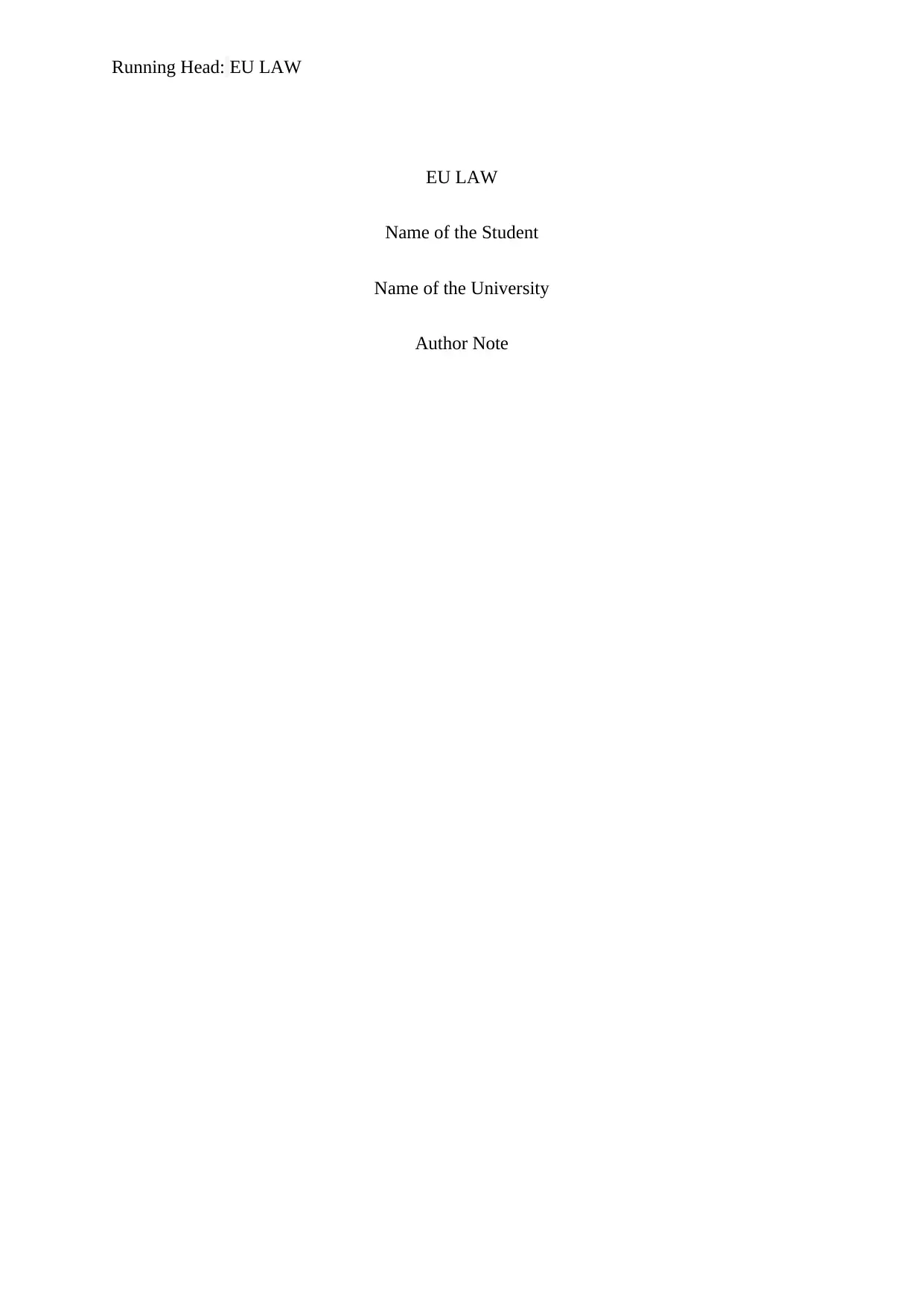
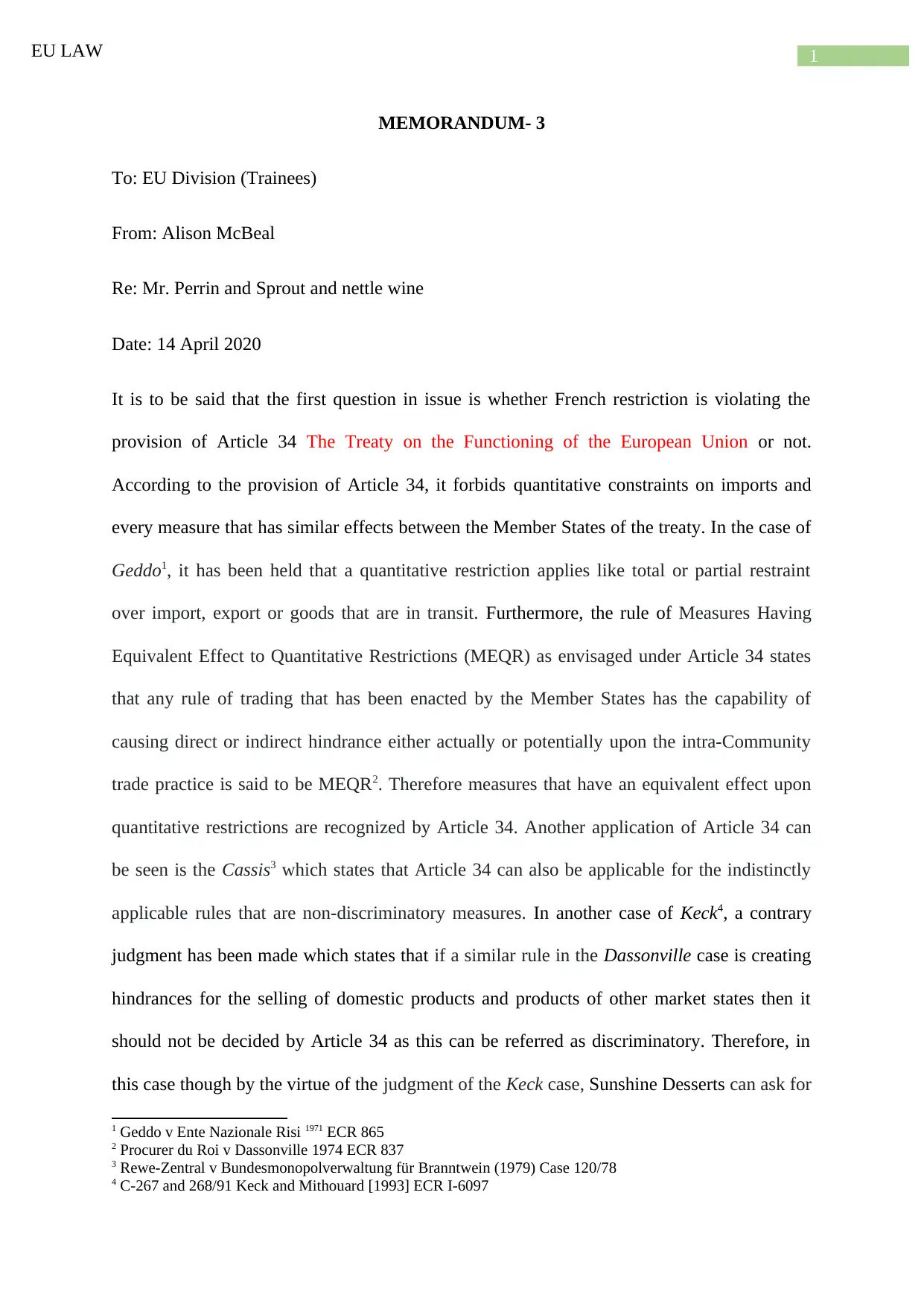
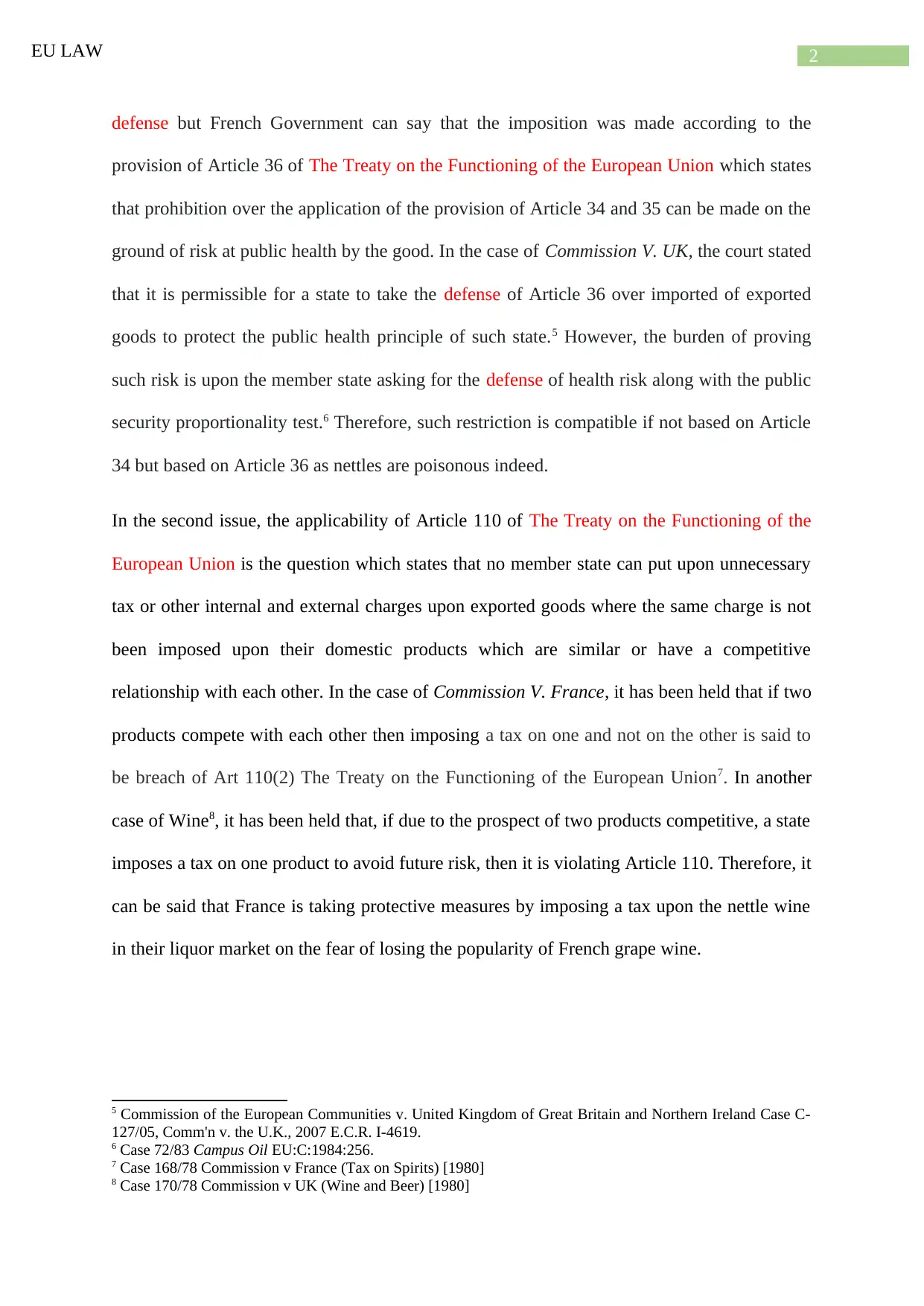

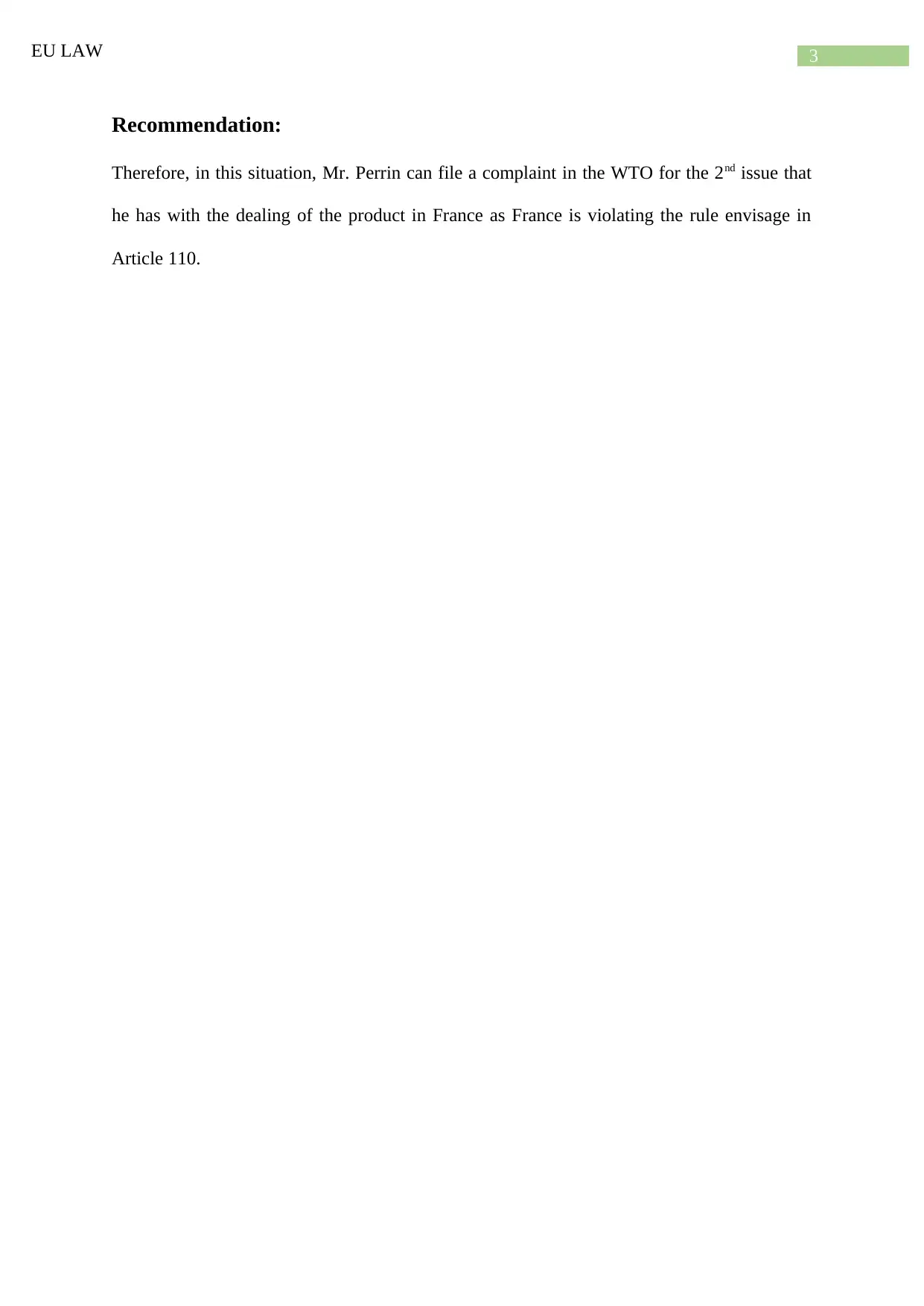
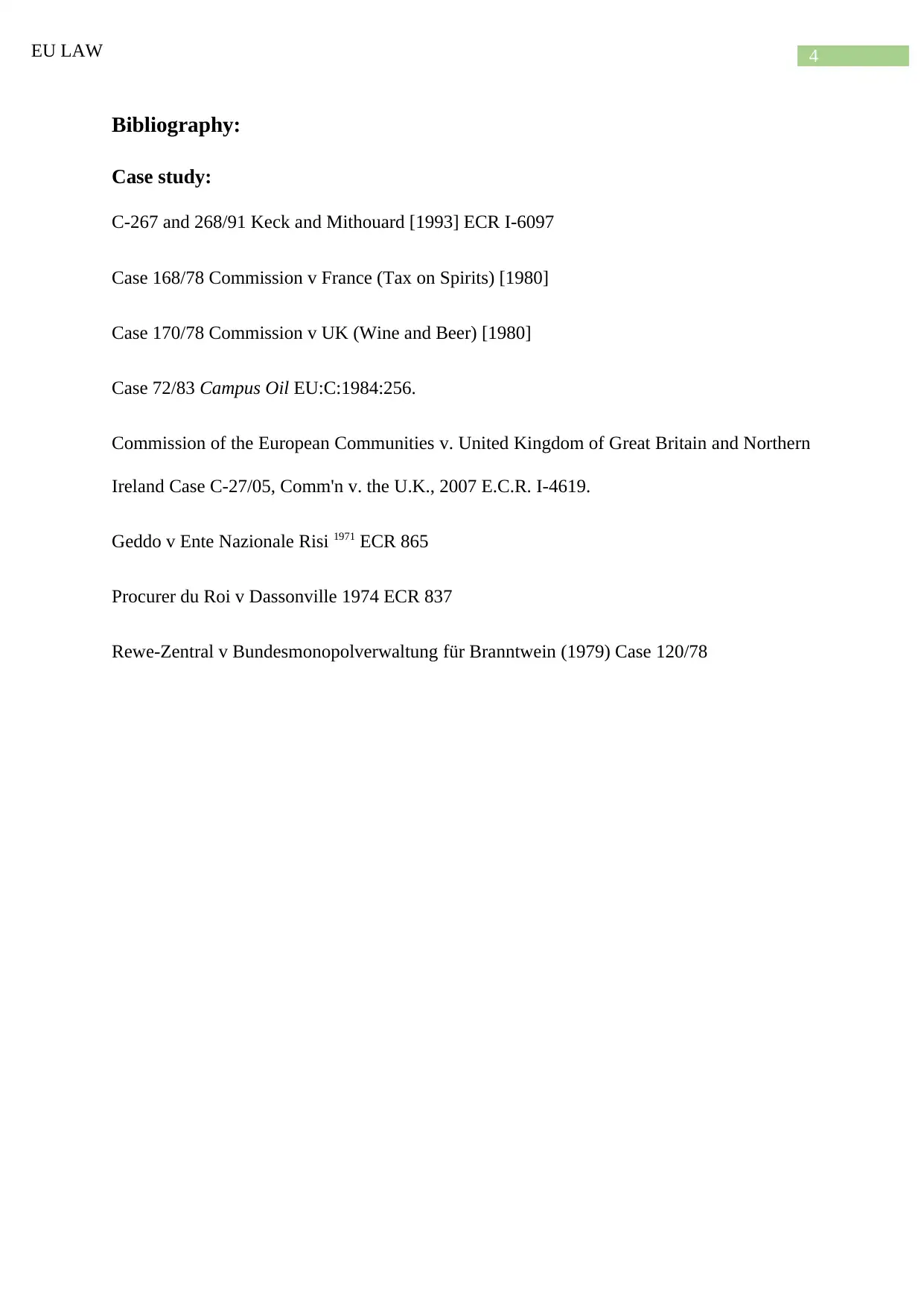






![[object Object]](/_next/static/media/star-bottom.7253800d.svg)